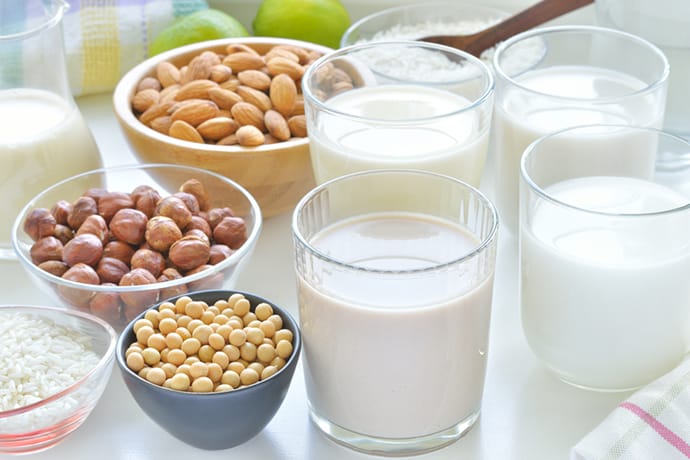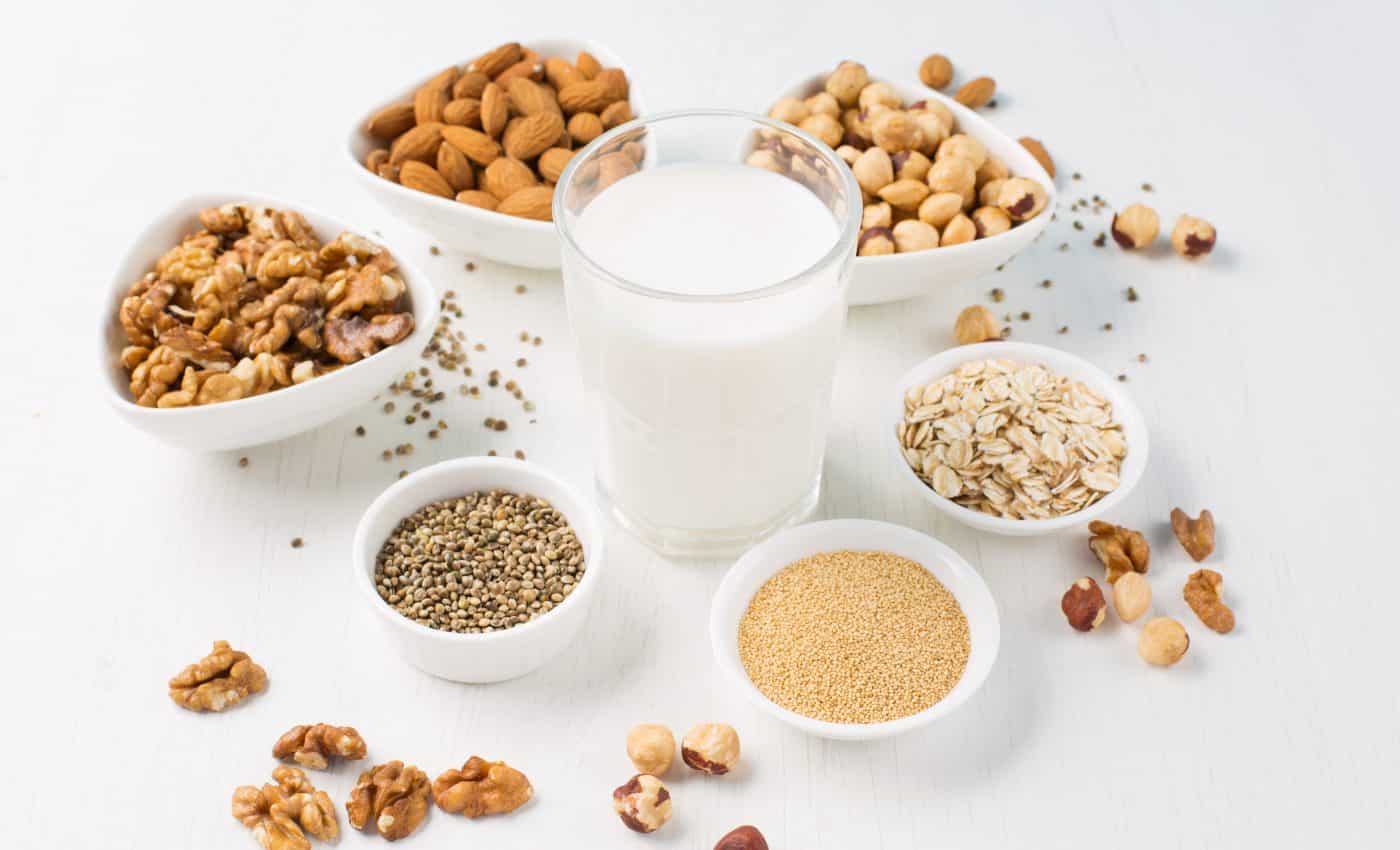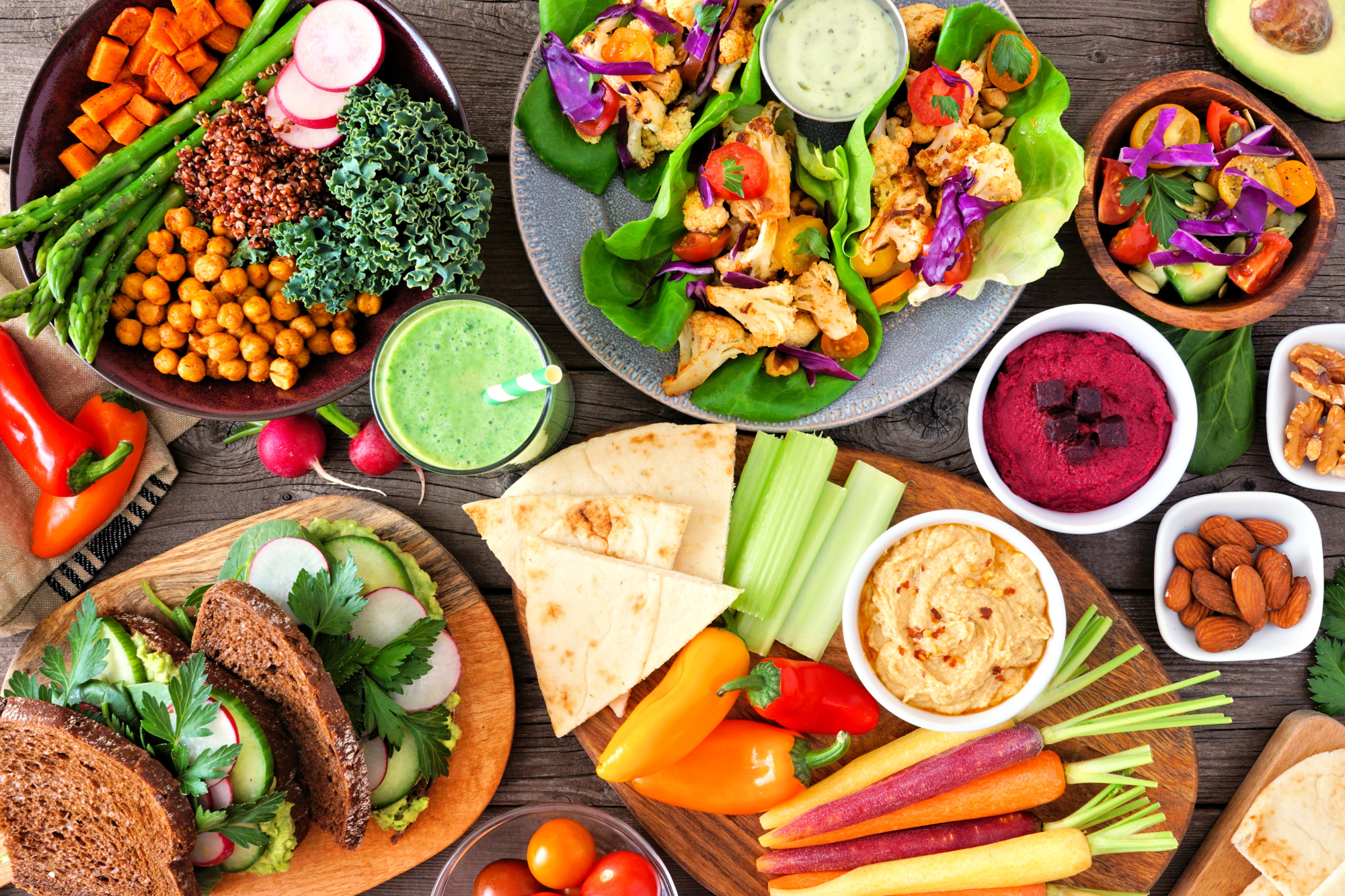In honour of International Coffee Day, a celebration of one of the world’s most beloved beverages, let’s delve into the art of pairing different types of plant-based milks with various coffee creations, from lattes to iced coffees. In recent years, the range of plant-based milks available has expanded into a vibrant tapestry of flavours and nutritional profiles that cater to a full spectrum of tastes and needs. Get ready to learn more about the beautiful synergy that connects coffee and plant-based eating!
Plant-based milks have been around for thousands of years but have only become a global phenomenon in the last few decades. They are now so popular that they have has become the growth engine for the milk industry as a whole. Let’s take a look at 10 different plant-based milks and how to optimally combine them with different kinds of coffee.
1. Soya: mastering the art of coffee foam
For many people around the world, soya is the go-to option when drinking coffee with plant-based milk since its protein profile is similar to that of cow’s milk. Additionally, protein content also affects the foamability of plant-based milk, since frothed milk – an essential element of key coffee classics such as lattes, cappuccinos, and flat whites – requires stable protein bonds. Frothed soya milk is unbeatable, while its neutral, earthy flavour provides a clean backdrop for the flavours of particular coffees to flourish. Additionally, soya milk is usually fortified with calcium and vitamins. Nutrition experts state that it can be used as a nutritionally adequate alternative to cow’s milk. In short, soya milk can be seamlessly integrated into your coffee routine. No wonder it’s still the most popular plant-based milk in the world.
2. Almond: the guilt-free latte choice
The subtle nutty taste of almond milk complements the rich, bold flavours of espresso beautifully. Its lower calorie content and unsaturated fats provide a health-conscious option that still delivers a creamy texture. There is also a great deal of variation when it comes to both sweetness and thickness/consistency across brands. This wide spectrum of almond milk’s delights ensures that every latte lover will find their perfect match, embracing both flavour and well-being with each sip.
3. Coconut: the tropical twist
Bring the taste of the tropics to your espresso with a dash of coconut milk. While the thicker canned version of coconut milk is perfect for cooking and baking, the lighter, thinner variety, usually available in cartons, might be just what you’re looking for. It’s naturally sweet and adds a unique twist to your coffee experience. The gentle coconut aroma pairs wonderfully with the rich tones of espresso, creating a rich fusion that’s sure to intrigue your taste buds.
4. Oat: thin and healthy
The gentle sweetness and consistency of oat milk make it a classic choice that complements any coffee. From espresso shots to lattes and even specialty drinks, oat milk’s neutral taste profile allows a bean’s unique flavours to shine while providing a smooth and comforting texture. While its thin consistency is similar to low-fat cow milk, oat milk’s high fibre content, along with its phytochemicals and antioxidants, make it a particularly healthy plant-based milk – and studies show that oat milk can also have a positive effect on cholesterol levels. Not surprisingly, oat milk is a popular choice among health-conscious consumers around the globe.
5. Rice: the hypoallergenic choice
Rice milk has a light and refreshing texture and a neutral taste, which makes it a great canvas for getting creative with your coffee. In the transformation from grain to milk, carbohydrates are split into sugars, which gives rice milk its typically sweet taste without the need for any added sugar. While it may be low in fat and protein, rice milk’s hypoallergenic nature makes it an inclusive choice for those with dietary sensitivities, allergies, or intolerances. However, its low protein content means that it’s not the best choice for lovers of lattes with a lot of foam.
The 10 best plant-based milks
Whether it is for their nutritional value, animal-welfare reasons, lower environmental impact, to avoid lactose or dairy milk allergens, or simply out of preference, there are many great options to try. ProVeg presents the 10 best plant milks.
6. Hemp: the omega-3 queen
For those seeking a boost of omega-3 fatty acids, hemp milk is the way to go. Made from the seeds of the hemp plant, hemp milk is low in carbohydrates and high in healthy unsaturated fats. Just a single glass of hemp milk can provide half of the recommended daily intake of alpha-linolenic acid, making it a great source of omega-3 fatty acids. Its nutty flavour enhances a bean’s flavour profile, while the abundant unsaturated fats contribute to a well-rounded sensory experience. Hemp milk’s versatility in both hot and cold drinks makes it a dynamic partner for all types of coffee enthusiasts.
7. Hazelnut: coffee for dessert
The slightly decadent aroma of hazelnut blends perfectly with the flavour of coffee, regardless of which kind of bean you’re using. Whether you’re adding it to your morning brew or creating a dairy-free version of your favourite hazelnut latte, this plant-based milk lends a deliciously nutty essence to the coffee experience. Because the flavours of hazelnut are so redolent of dessert, it always makes coffee feel a little like a treat – and is also perfect for adding to hot chocolate. We highly recommend giving it a try!
8. Macadamia: the newcomer
Macadamia milk, a relative newcomer, is not yet widely available in most countries. With its velvety texture, creamy profile, and subtle nutty essence, it can be a great companion for your coffee when you’re in the mood to change things up and try something special.
9. Pea: the light choice
Pea milk is low in calories and sugar, so it can be a good choice if you want to keep your lattes light. It has a mellow flavour, so you can combine it with your favourite coffee blend, without dominating the flavour. If, however, you are more interested in an iced coffee or a cold smoothie, we recommend choosing a different plant-based milk since pea milk doesn’t pair as well with cold beverages. And if you’re worried about giving your latte a green hue, no worries – pea milk is actually made from yellow split peas!
10. Cashew: elevating iced coffees
When the sun is shining, and you’re craving a refreshing iced coffee, cashew milk steps up to the plate. Its distinctive taste adds a layer of complexity to your chilled brew, while its creamy consistency ensures a satisfying sip. Cashew milk’s ability to hold up well in cold drinks makes it an ideal companion for those days when you need a cool caffeine boost. The fat contained is mostly unsaturated fat and can be a great choice for people with high cholesterol levels or who are watching their fat intake. Cashew milk has only about two grams of carbohydrates per cup. It is perfect for use in coffee and adds a thickness that works wonderfully in lattes.
Harmony, flavour, and texture
As you embark on your coffee journey, remember that the magic of plant-based milk lies in its ability to harmonise with your favourite brews, enhancing their flavours and textures in unique ways. Just as coffee beans come from diverse regions, plant-based milks bring a world of taste to your cup. So, this World Coffee Day, raise your mug to the harmonious relationship between coffee and plant-based milk. Three cheers for exploration, experimentation, and the joy of finding your perfect match!
The Plant Milk Report: moving towards a healthy and sustainable diet
Based on current studies, this detailed report explores the role that plant milks can play in terms of global healthy and sustainable nutrition, from producers through to distributors and consumers.












